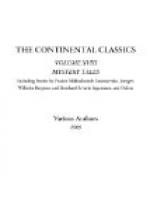HUNGARIAN MYSTERY STORIES
FERENCZ MOLNAR
THE LIVING DEATH
There is a very serious reason, my dear sisters, why at last, after an absence of twenty years in America, I am confiding to you this strange secret in the life of our beloved and lamented father, and of the old house where we were children together. The truth is, if I read rightly the countenances of my physicians as they whisper to each other by the window of the chamber in which I am lying, that only a few days of this life remain to me.
It is not right that this secret should die with me, my dear sisters. Though it will seem terrible to you, as it has to me, it will enable you to better understand our blessed father, help you to account for what must have seemed to you to be strange inconsistencies in his character. That this secret was revealed to me was due to my indolence and childish curiosity.
For the first, and the last, time in my life I listened at a keyhole. With shame and a hotly chiding conscience I yielded to that insatiable curiosity—and when you have read these lines you will understand why I do not regret that inexcusable, furtive act.
I was only a lad when we went to live in that odd little house. You remember it stood in the outskirts of Rakos, near the new cemetery. It stood on a deep lot, and was roughly boarded on the side which looked on the highway. You remember that on the first floor, next the street, were the room of our father, the dining room, and the children’s room. In the rear of the house was the sculpture studio. There we had the large white hall with big windows, where white-clothed laborers worked. They mixed the plaster, made forms, chiseled, scratched, and sawed. Here in this large hall had our father worked for thirty years.
When I arrived, in the holidays, I noted a change in our father’s countenance. His beard was white, even when he did not work with the plaster. Through his strong spectacles his eyes glittered peculiarly. He was less calm than formerly. And he did not speak much, but all the more did he read.
Why, we all knew that after the passing away of our mother he became a bookworm, reading very often by candlelight until morning.
Then did it happen, about the fourth day after my arrival. I spent my leisure hours in the studio; I carved little figures, formed little pillar heads from the white plaster. In the corner a big barrel stood filled with water. It was noon; the laborers went to lunch.
I sat down close to the barrel and carved a Corinthian pillar. Father came into the studio and did not notice me. He carried in his hands two plates of soup. When he came into the studio he closed the door behind him and looked around in the shop, as though to make sure he was not observed. As I have said, he did not notice me. I was astonished. Holding my breath, I listened. Father went through the large hall, and then opened a small door, of which I knew only so much that it led into a chamber three steps lower than the studio.




